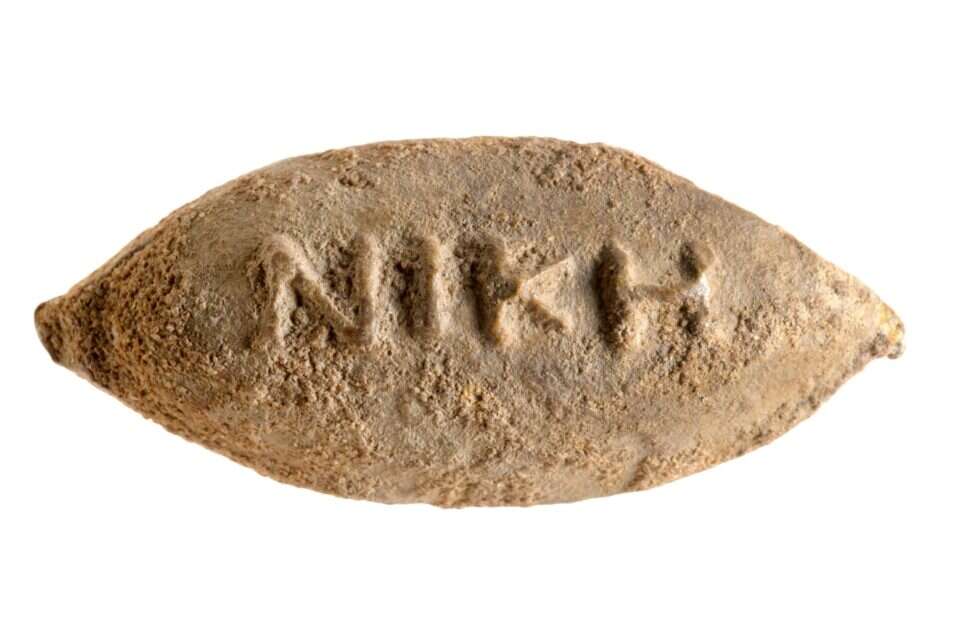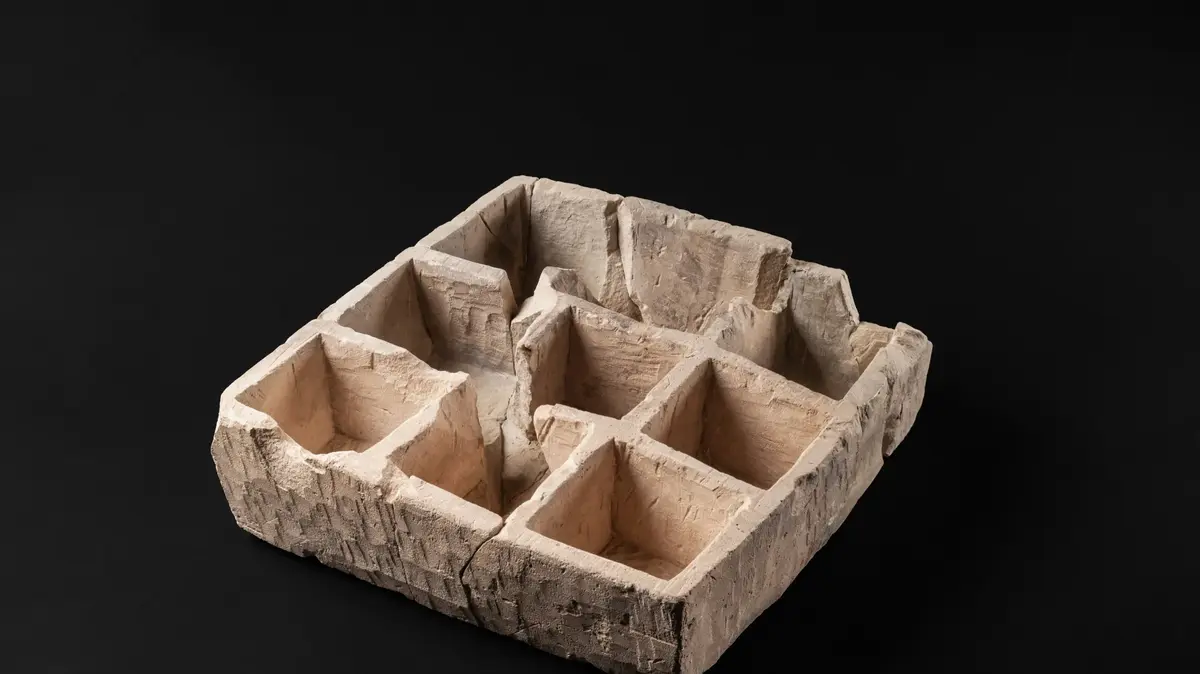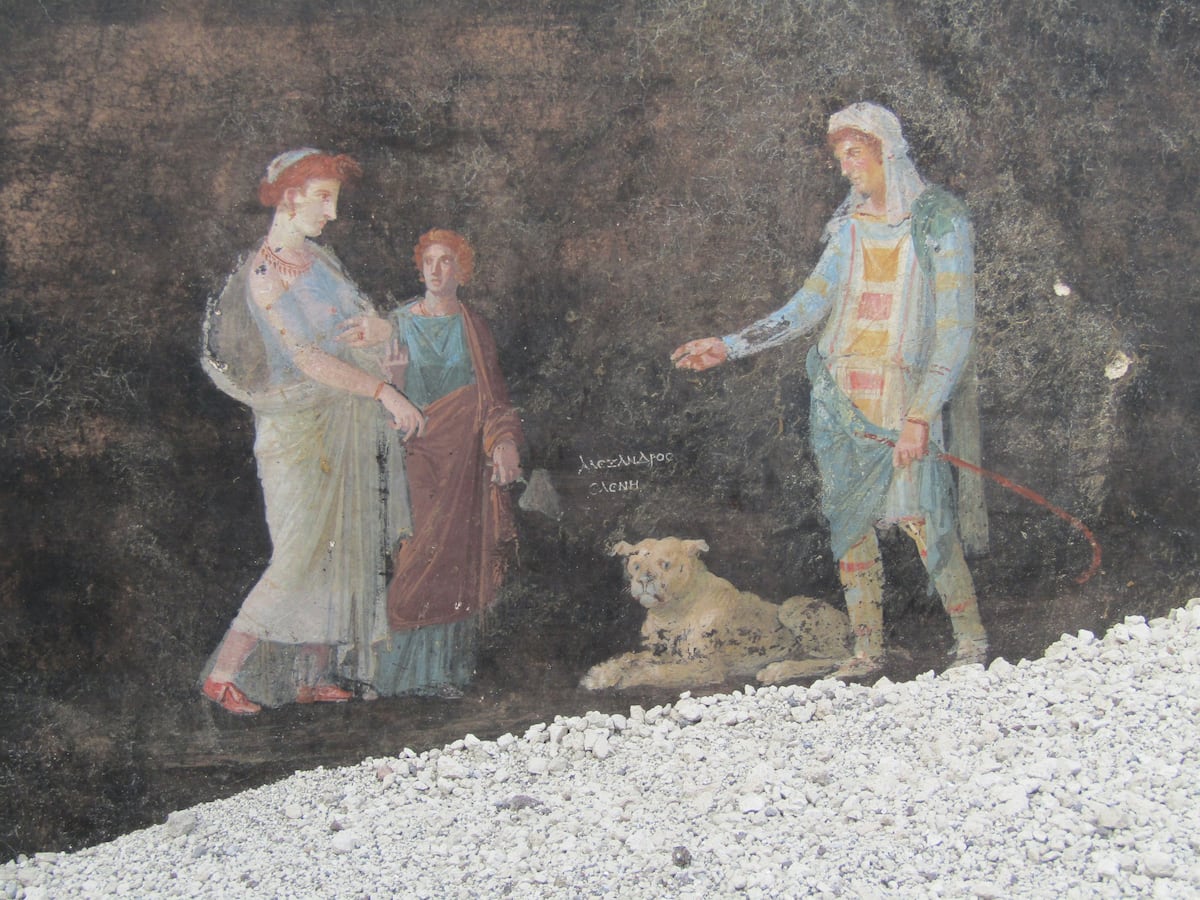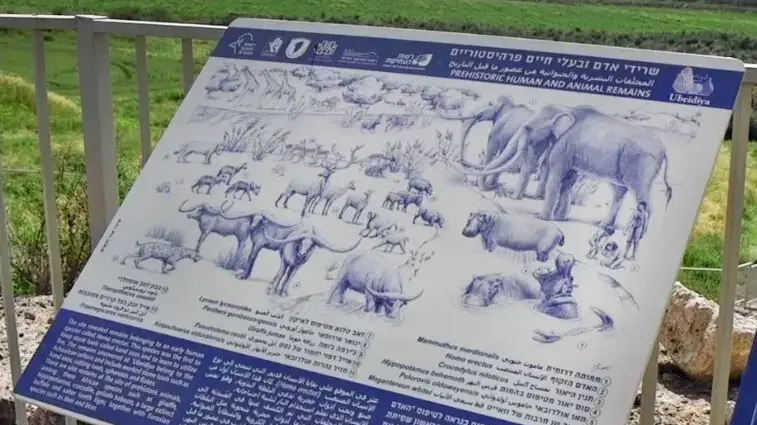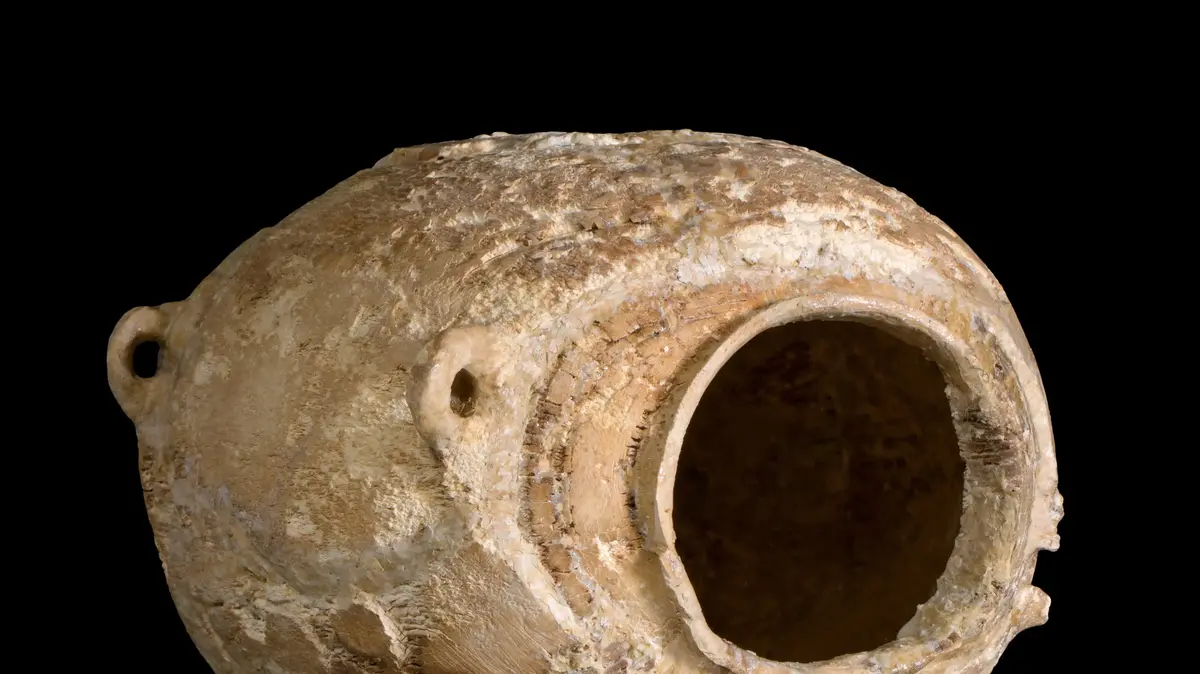A rare lead projectile of its kind, bearing a magical inscription for victory, was recently discovered in excavations conducted by the Yavneh Antiquities Authority at the Tel Yavneh archaeological site, as part of the plan to expand the city.
The age of the projectile, which may have belonged to a Greek soldier from the Hellenistic period, is estimated at about 2,200 years.
It bears the inscription "Victory of Heracles and Oronas" to "guarantee" victory in battle, and is intended to be fired from a sling device (a sort of rogateka) and is 4.4 centimeters long.
The names of the gods Heracles and Oronas on the ancient projectile, photo: Dafna Gazit - Israel Antiquities Authority
Prof. Yulia Ustinova from Ben Gurion University of the Negev, who deciphered the inscription, stated: "The pair of gods Oronas and Heracles were considered divine patrons of Yavneh during the Hellenistic period. The inscription on the bullet is the first archaeological evidence of the two guardian gods of Yavneh, which was uncovered within the city itself. To this day, The pair was known only from one address, on the Greek island of Delos. As a couple, Heracles and Oronas were a perfect team of victory-givers. Announcing the future victory of Heracles and Oronas was not a call to the deity, but a threat to the adversaries."
She added: "Lead projectiles are known in the ancient world starting from the 5th century BC, but in the Land of Israel, individual projectiles were found with inscriptions on them. The inscriptions convey a message of uniting the warriors with the aim of raising their spirits, scaring the enemy, or a call intended to magically energize the projectile himself. These inscriptions were part of psychological warfare, the main purpose of which was to terrorize the opponent, and also to unite the combatants."
The excavation area in Tel Yavneh where the ancient projectile was discovered, photo: Emil Eljem - Antiquities Authority
Pablo Betzer and Dr. Daniel Varga, the managers of the excavation on behalf of the Antiquities Authority, said of the discovery: "It seems that we will not be able to know for sure if the projectile belonged to a Greek soldier, but it is not impossible that it is related to the conflict between the Greeks and the Hasmoneans.
In the 2nd century BC, the pagan Yavneh, which was an ally of the Seleucids, the Greeks who ruled the Land of Israel, was subject to attacks by the Hasmonean armies.
They sought to subjugate the other nations and create a homogenous and pure religious-ritual state.
The tiny lead projectiles, which announce the imminent victory of the pagan Eliya of Yavneh, are tangible evidence of a fierce battle that took place in the city at that time."
Eli Escozido, Director of the Antiquities Authority: "One can only imagine what that warrior who held the projectile 2,200 years ago thought and felt, as he clung to the hope of divine salvation. The excavation at Tel Yavneh is a huge excavation, one of the largest conducted by the Authority. So far, it has yielded fascinating discoveries that testify On a rich and varied history of 7,000 years, and the hand is undoubtedly still tilted."
Antiquities Authority excavation in Tel Yavneh, photo: Assaf Peretz - Antiquities Authority
were we wrong
We will fix it!
If you found an error in the article, we would appreciate it if you shared it with us

